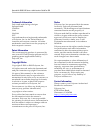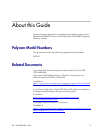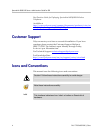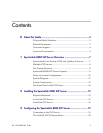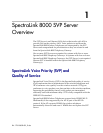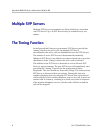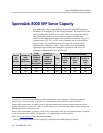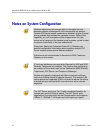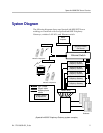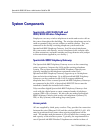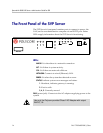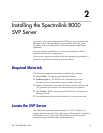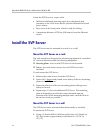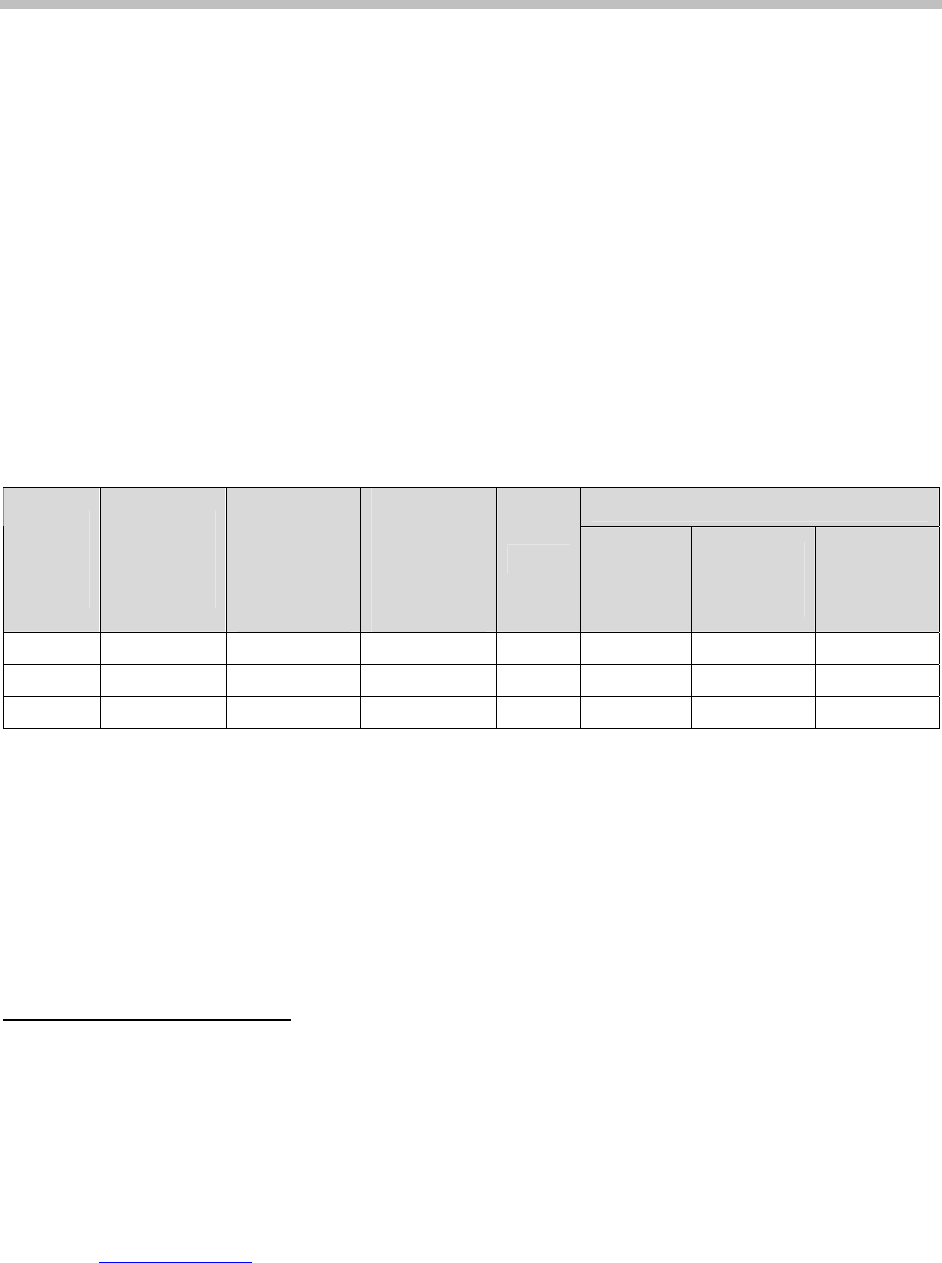
SpectraLink 8000 SVP Server Overview
PN: 1725-36032-001_G.doc
9
SpectraLink 8000 SVP Server Capacity
The table below shows the capacity of SpectraLink 8000 Telephony
Gateways in a multiple SVP Server environment. The table shows the
total possible calls at 100% active calls. However, since it is unlikely
that all handsets will be in use at the same time, the table then
analyzes the number of handsets that could be installed in any given
system where 15%, 25% or 50% of the handsets are in active calls at
any one time. The calculations are not linear due to the Erlang
1
calculation for telephony traffic. The possible installed handsets
figures are approximate and meant as a guideline and not as an
absolute recommendation for any facility.
Possible installed handsets
Number
of
SVP
Servers
Number of
calls
possible
per Server
Total
possible
installed
handsets
@ 100% in
active calls
Number of
SpectraLink
8000
Telephony
Gateways
required
Erlang
@ 15% in
active
calls
@ 25% in
active
calls
@ 50% in
active
calls
1 120 120 15 103 240 240 206
2 120 240 30 111 480 480 438
3 120 3202 40 160 640 640 640
1
An Erlang is a unit of telecommunications traffic measurement. Strictly speaking, an Erlang represents the
continuous use of one voice path. In practice, it is used to describe the total traffic volume of one hour.
Erlang traffic measurements are made in order to help telecommunications network designers understand traffic
patterns within their voice networks. This is essential if they are to successfully design their network topology and
establish the necessary trunk group sizes.
Erlang traffic measurements or estimates can be used to work out how many lines are required between a telephone
system and a central office (PSTN exchange lines), or between multiple network locations.
Please visit www.erlang.com
for additional information.
2
Limited by the eight simultaneous calls supported by each SpectraLink 8000 Telephony Gateway.




